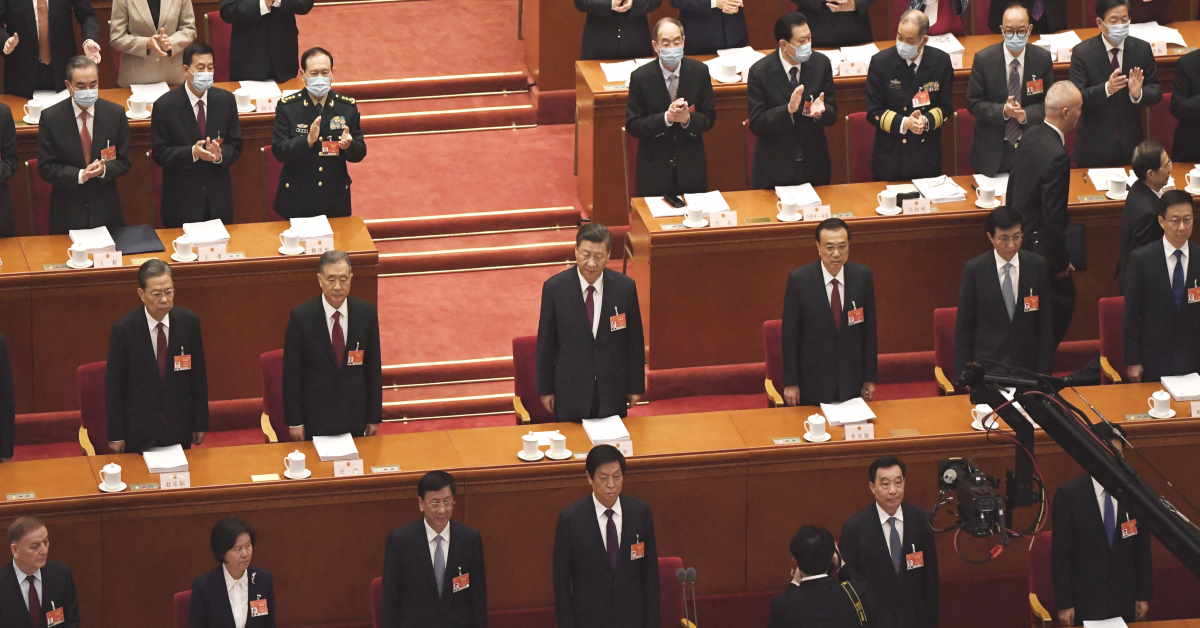China moved Friday to grant itself veto powers over selecting Hong Kong's lawmakers, part of a campaign to eliminate dissent and ensure a "patriotic" government in the city following huge democracy rallies in 2019.
Legislation to allow China's communist rulers to vet all election candidates in Hong Kong was tabled at the opening of the nation's rubber-stamp parliament in Beijing.
It came a day after dozens of democracy campaigners in the financial hub – including former lawmakers – were jailed under a security law that was passed during last year's parliamentary session.
The new legislation includes a "qualification vetting system" that will promote "orderly political participation", parliamentary spokesman Wang Chen told reporters.
China had committed to giving Hong Kong a degree of autonomy when it reverted from British colonial rule in 1997.
But it began moving quickly to dismantle the financial hub's democratic pillars in response to huge and sometimes violent democracy rallies that paralysed the city throughout 2019.
The introduction of the vetting legislation – expected to be approved next week – was quickly interpreted as one of the final nails in the coffin of Hong Kong's democracy movement.
"If the measures are passed, as I'm sure they will be, then the voice of the opposition will be effectively silenced," said Willie Lam, China analyst at the Chinese University of Hong Kong.
"This will effectively wipe out any remaining opposition."
The measure had been widely expected with Beijing officials stating in the lead-up that only "staunch patriots" – those loyal to the Communist Party – should be involved in governing Hong Kong.
But the proposed rules drew swift condemnation from the European Union (EU), which warned that it may expand existing sanctions on exports to China if the situation worsens.
"The EU calls on the authorities in Beijing to carefully consider the political and economic implications of any decision to reform the electoral system of Hong Kong that would undermine fundamental freedoms, political pluralism and democratic principles," an EU spokesperson said.
"The EU stands ready to take additional steps in response to any further serious deterioration of political freedoms and human rights in Hong Kong, which would be against China's domestic and international obligations."
The Chinese congress session opened with an annual address by Premier Li Keqiang, who made no mention of Hong Kong besides a Communist Party boilerplate about the city continuing to enjoy a "high degree of autonomy".
Economic Power
The annual week-long gathering of roughly 3,000 delegates, held in the cavernous Great Hall of the People in Beijing, is China's biggest political event of the year.
The highly choreographed display is held to drive home the unquestioned domestic power of the Communist Party while updating China and the world on its economic, political, environment and foreign policy priorities.
The event takes place with China outpacing other major economies after bringing the coronavirus pandemic, which first emerged on its soil, under control through draconian lockdowns and mass testing.
Li said the government was aiming for 2021 growth in the world's second-biggest economy of "above six percent".
"In setting this target, we have taken into account the recovery of economic activity," Li told delegates in China's equivalent of a "state of the nation" address.
China's economy expanded just 2.3 percent in coronavirus-stunted 2020, but Li noted the country was still "the world's only major economy to achieve growth" last year.
Analysts believe China's economy could grow eight to nine percent this year.
China's finance ministry, meanwhile, revealed that the nation's military budget – the world's second largest after the United States (US) – would increase 6.8 percent in 2021 to 1.36 trillion yuan (US$210 billion).
But China's official budget number is widely believed to be lower than true spending.
Li made no direct mention of brittle ties with the US, China's trading partner and geopolitical rival, with all eyes now on how the relationship may evolve under new US leader Joe Biden.
China's Foreign Minister Wang Yi holds a press conference on diplomatic affairs Sunday on the Congress's side lines.
The National People’s Congress (NPC) session may consider a proposed revision to wildlife protection laws that would permanently ban eating most wildlife, amid the belief that the pandemic came from an animal host. – AFP
